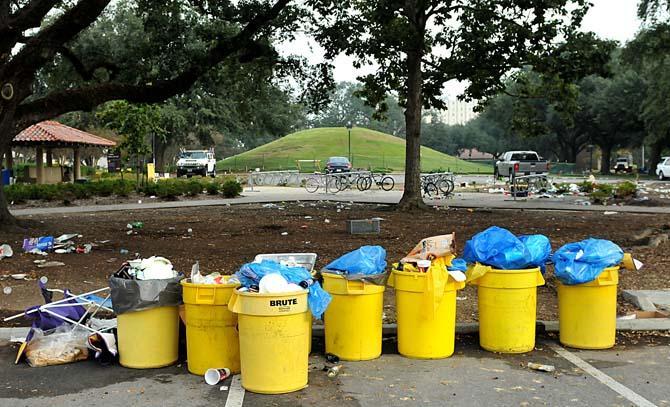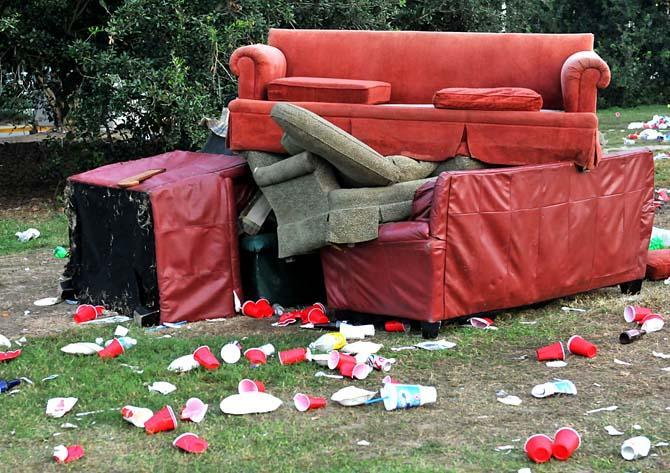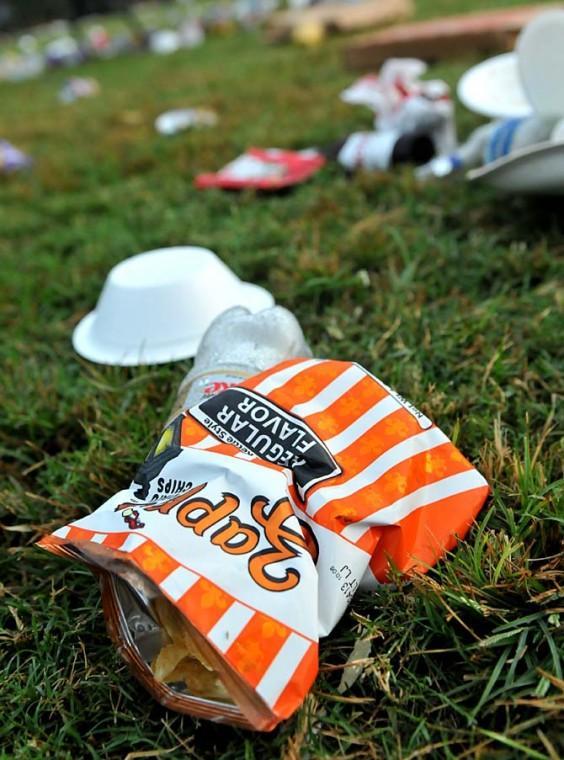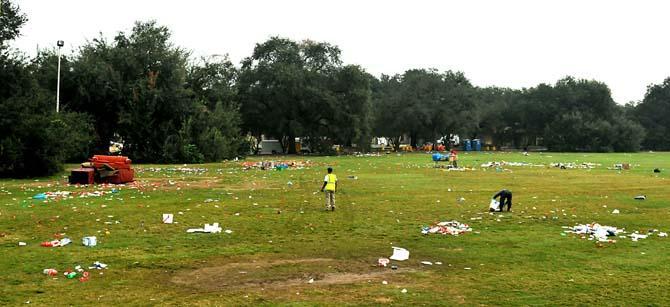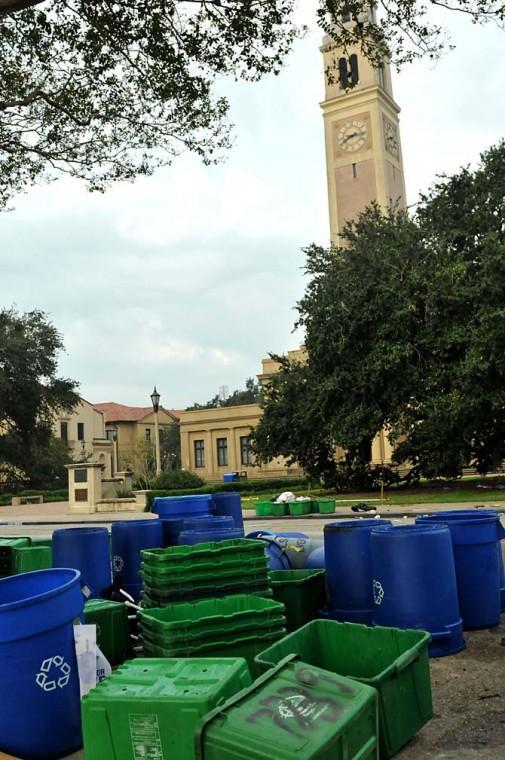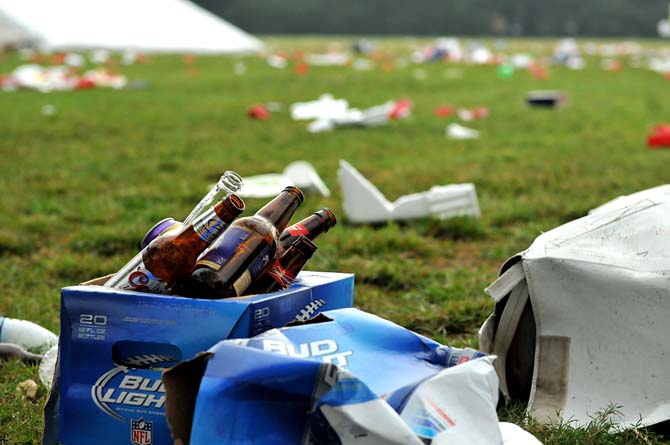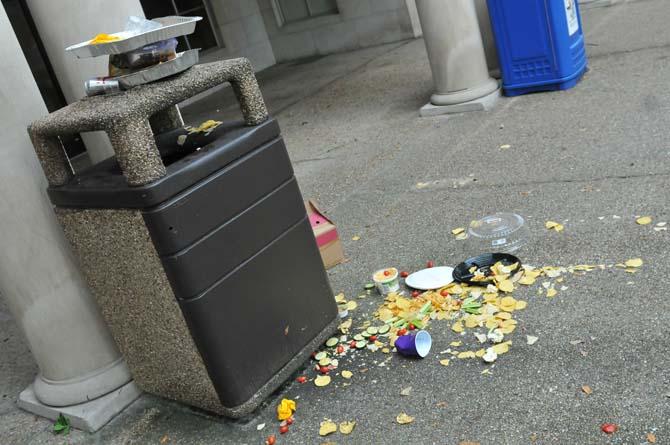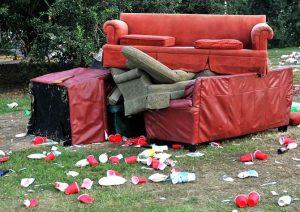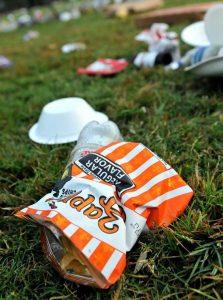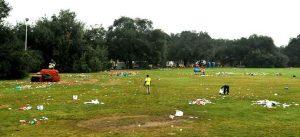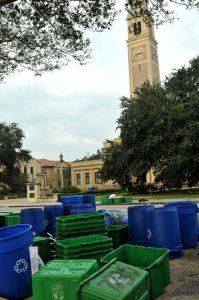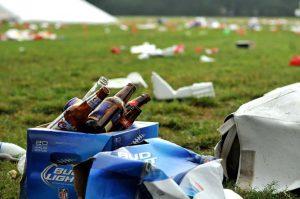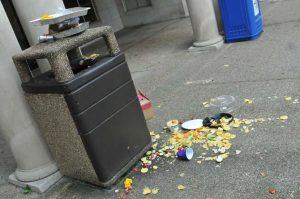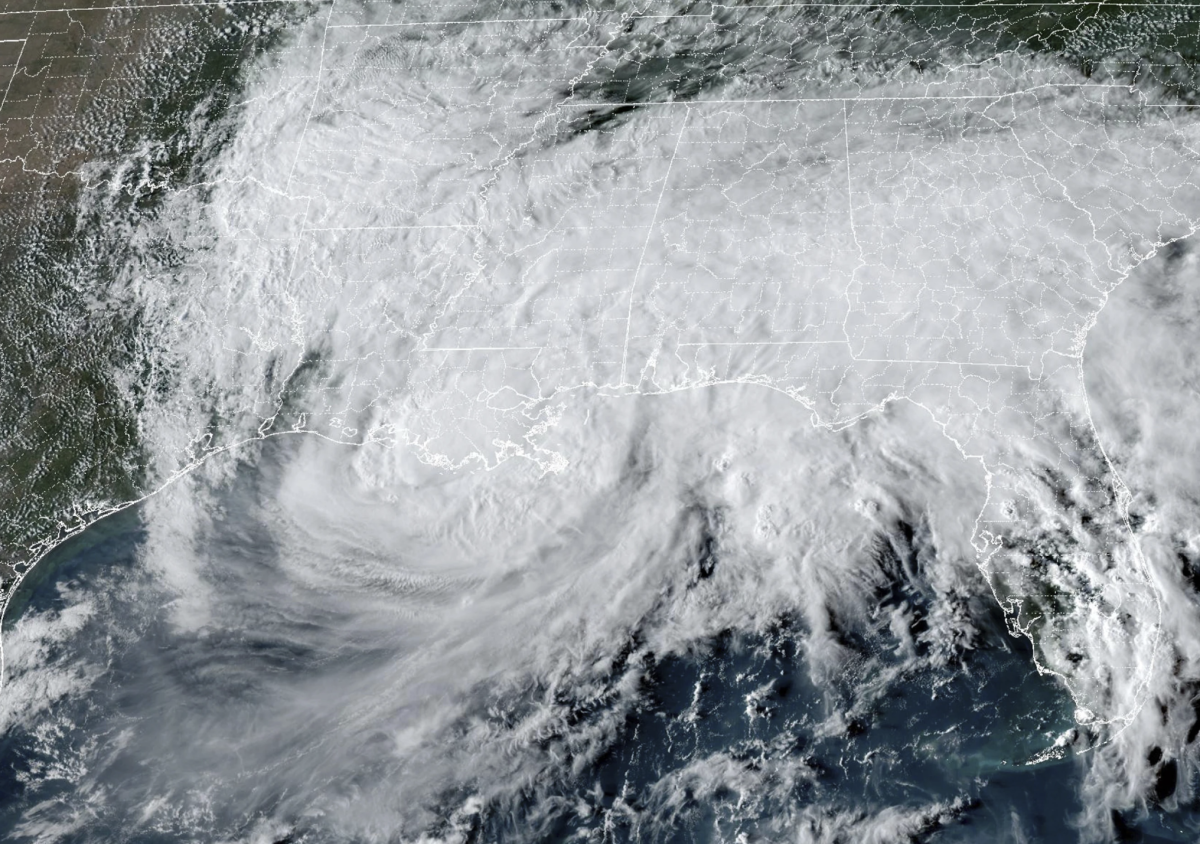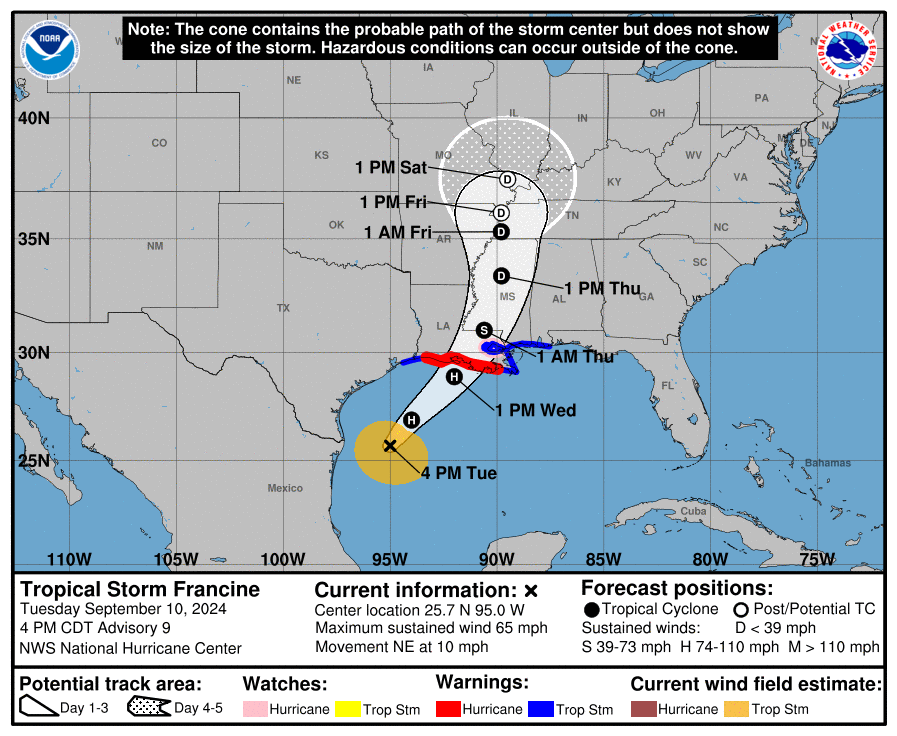LSU football games are notorious for their epic tailgates. From sunrise on Saturday morning until the stadium lights shine on Saturday night, fans can be found around campus sharing love for the LSU Tigers.
But when over 100,000 people gather to celebrate, it is hardly a contained event. Litter and garbage cover campus, but by Sunday afternoon, it is as if nothing ever happened.
Although it may seem like the work of a miracle, the cleanup effort after LSU home games is a well-organized and thoroughly thought-out system composed of men and women dedicated to ensuring that LSU students are able to enjoy the beautiful grounds.
For Facility Services, LSU game days start the Thursday and Friday before. 3,520 thirty-five-gallon and 55 forty-five-gallon trash and recycle cans are placed around campus by over a hundred members of the Landscape Services team in an effort to contain as much litter and waste as possible.
“It is important to us that everyone who is tailgating has the opportunity to put their trash in a trash can and to recycle,” said Tammy Millican, the executive director of Services Engagement & Communication.
Each game, workers are divided into groups assigned to a certain area they are responsible for maintaining. The groups are led by an employee with experience in game day cleanup.
Preparation for game day can start as early as 3 a.m. Crews line every can with waste bags and distribute an additional 1,300 small recycling containers to tailgates.
Throughout the day, crews check for overflowing trash cans and adjust the placement of receptacles so they are in the most populated areas. As soon as fans begin to enter the stadium, the trash is tied up and brought to the street nearest to the tailgate site. Cleaning efforts outside of the stadium usually last until midnight.
Garbage trucks from Pelican Waste and Debris meet the crews at 4 a.m. Sunday at the Landscape Services building. Six trucks pick up non-recyclable waste and two are used for recyclables. These trucks circle campus and pick up bags from trash bins and bags of litter that are collected that morning. Two more trucks are also on standby in the event that one of the trucks is delayed or becomes too full.
Jay Ransom, grounds manager at Landscape Services, explained one of the biggest challenges with the trucks is half-empty drink cans.
“When the truck compacts the garbage, beer and other liquids spray out of the trucks and onto the roads,” Ransom said. “When this is left out it can create a really horrible smell. The trucks have to unload more frequently to release the extra liquid.”
Rain can also be a large delay for clean up efforts. Waste that is left on the ground can begin to dissolve with exposure to water, which can make it harder to pick up. Rain water can also affect the amount of liquid in the truck.
Millican said that crews will work through most elements, including rain and heat, but when weather is involved it is essential that teams work efficiently. Rain affected cleanup this season after the game against Alabama on Nov. 3. Cleaning efforts were extended until Monday afternoon.
Every year, the areas that are heavily populated and trashed on game days change. This year, with the removal of fraternities and sororities from the Parade Ground, some of the messiest tailgates are located around the Indian Mounds and Lockett Hall.
John Marquess, weekend and event manager at LSU Landscape Services, recalled how trash on the Parade Ground used to be “knee deep,” and acknowledged the improvement.
“The frats understand that they are under a microscope,” Marquess said. “Eighty percent of their tailgates are very clean after game days thanks to the fraternity president.”
Offenders from Dixon Correctional Institute and Elayn Hunt Correctional Center are also enlisted to assist in clean up. Marquess said these teams are essential to the efficiency of the process. Usually, 10 teams of 10 to 20 men assist in picking up recyclables.
“The offender crews are some of the nicest people you’ll meet,” Marquess said. “Some of them have been working out here for four or five years. They know their zones and what to do. They are a big help.”
Rhonda Hano, administrative coordinator for Landscapes Services, described the cleanup on game days as running their own “little city.”
“We have an infrastructure set up,” Hano said. “We have our own garbage trucks and workers. It’s just like the trash-man going to all the houses in town, except we only have one day to do it.”
Cleanup within Tiger Stadium is under the direction of a private contractor called Can Do Enterprises. This company is responsible for organizing student volunteer efforts to clean the stadium. In partnership with Pelican Waste and Debris, Landscape Services provides two additional trucks, one for recyclables and one for waste, to help dispose of the trash from the 200 ninety-five-gallon bins in use and what is collected by volunteers.
LSU Athletics is responsible for all operations on game day. All plans and processes for cleanup are coordinated with Landscape Services and Can Do Enterprises before the start of football season. At the end of the season, areas of improvement are noted for the next year.
“This is an operation that has been in place for many years,” Millican said. “It is tweaked each year. Most of it comes down to how big the game is going to be. You prepare differently for a game like Rice than you would for a game like Alabama.”
Cleaning up after LSU game days is a science. So much work goes on behind the scenes of every football game that is largely unappreciated by game-goers and tailgaters, but without the efforts of LSU Landscape Services and LSU Athletics, the campus would not be the same place so many people love and enjoy.
“You have to understand that this job is about making sure everyone is taken care of,” Marquess said. “So many people put so much money coming out here, but I promise that if everyone experienced a Sunday morning at Landscape Services, the litter would be so much less.”



